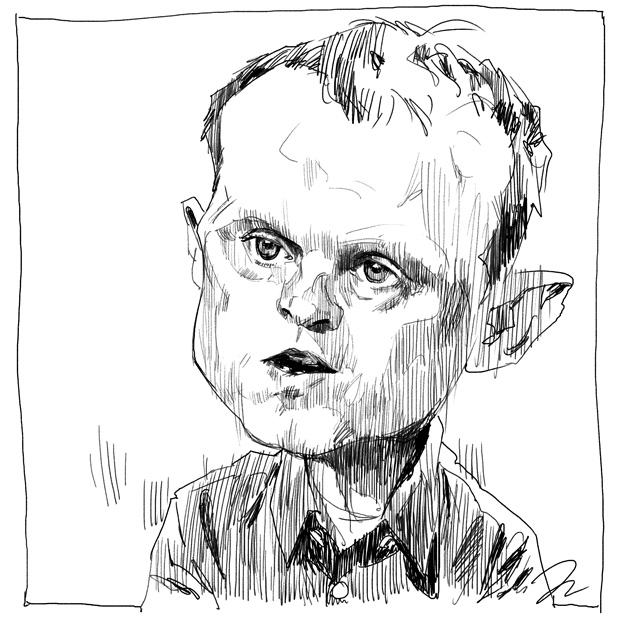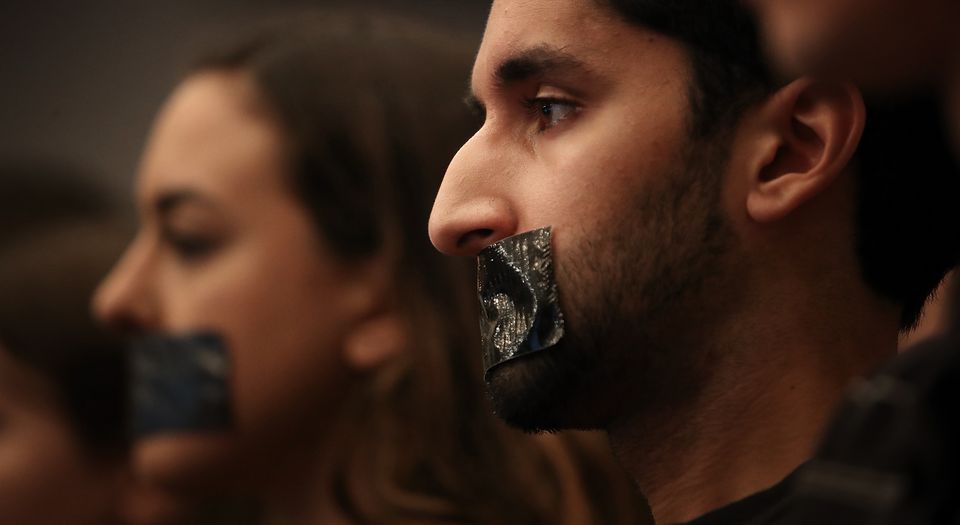An epidemic of literal-mindedness
Commentators seem to be so thick that they take jokes and figures of speech literally.

Want to read spiked ad-free? Become a spiked supporter.
Telling jokes on Twitter is a risky affair. Comedian Kevin Hart was pressured to withdraw from hosting the Oscars because of arguably homophobic gags he posted online many years ago. James Gunn, director of the Guardians of the Galaxy film series, has only recently been rehired by Disney after he was sacked for tweeting jokes about paedophilia. Justine Sacco, a PR executive, became the top trending story worldwide after tweeting to her 170 followers from Heathrow airport: ‘Going to Africa. Hope I don’t get AIDS. Just kidding. I’m white!’ By the time she landed in Cape Town, her career was over.
Anyone familiar with social media knows that at any given time there are armies of offence-seekers, poised over their laptops, perspiring with glee at the prospect of ‘calling out’ those who blaspheme against the Holy Church of Wokeness. The other day I posted a screenshot of an extremely improbable result from ‘The Political Compass’, a website that measures an individual’s political temperament against economic (left-right) and social (authoritarian-libertarian) axes. It wasn’t my result at all, but that of an extreme far-right tyrant. The image was captioned: ‘Turns out I’m more left-wing than I thought.’ Within two hours, my daft joke had been quoted back to me as evidence of my right-wing beliefs.
I suppose I should have known better. All comedians are accustomed to varying reactions to their material, whether that’s online or in the white heat of live stand-up. There’s no such thing as a universally successful joke because of the inherent subjectivity of humour. But for any routine to work, we have to assume that the audience is sufficiently comedy-literate to understand that gags are not literal expressions of the truth. Those who fail to appreciate the distinction tend to be those who also argue that comedians should take great care not to cause offence. Ricky Gervais has a joke about an audience member who thinks it’s all about him. ‘Why did the chicken cross the road?’, he asks. ‘Well hey dude’, comes the furious reply, ‘my chicken died yesterday’.
I can’t be alone in observing that this kind of self-obsessed literal-mindedness is far more common now than ever before. I’ve written previously about an experience at the Edinburgh Festival Fringe where an outraged audience member interrupted my show because she had decided to take one of my jokes at face value. I can’t help but think that this sort of behaviour is connected to the low regard in which stand-up is held. How often do punters heckle during productions of Titus Andronicus because of Shakespeare’s problematic endorsement of rape, dismemberment and cannibalism? Should we be concerned that Angela Lansbury is so often in the vicinity when murders take place? Is it true that Shakira’s hips are incapable of deceit?
This is not just confined to Twitter users, either. Politicians and media commentators appear to exercise an almost wilful ignorance of the basic concepts of metaphor and hyperbole. This week Robert Rowland, a Brexit Party MEP, sent the following tweet: ‘We are behind all our fisherman [sic] and the restoration of sovereignty over our waters. 200 miles of exclusion zone with any foreign fishing vessel given the same treatment as the Belgrano!’ The Independent reported that Rowland had ‘called for the Royal Navy to sink EU fishing vessels’, assuming that his reference to the ill-fated Argentine cruiser was a direct endorsement of a policy that ‘would see EU boats as far away as France’s Bay of Biscay attacked by British warships’. The Liberal Democrat MEP Chris Davies claimed to feel ‘sick to the stomach’ after hearing that Rowland was ‘calling for fishermen from another nation to die in our waters’.
Are these people genuinely as stupid as they seem? Can it be possible to achieve a successful career in politics or the media without being able to understand the difference between hyperbole and open calls for violence? Perhaps Rowland is truly as ‘evil’ as his political rivals claim, although it’s far more likely that they are seeking to discredit him by intentionally misinterpreting his comment. In any case, it would be far more effective simply to criticise him for his undiplomatic language, rather than pretending that he yearns for the destruction of fishermen’s boats like some kind of demented latter-day Poseidon.
We have become so used to accepting the media’s literal-mindedness that we rarely question it, particularly when it confirms what we’d like to believe of our opponents. I myself have made jokes at the expense of Boris Johnson for his use of offensive language about black people without bothering to check the context. It’s only recently that I actually read the original article in which he describes ‘flag-waving piccaninnies’ and ‘tribal warriors’ with ‘watermelon smiles’. And although I’m no fan of Johnson, I have to concede that the article in question is quite plainly using colonial rhetoric in order to mock Tony Blair for his international saviour complex. Perhaps Johnson does harbour racist feelings, but this attempt at satire cannot, if we’re being honest with ourselves, be cited as incriminating evidence.
I’m reminded of a tweet by the comedian Andrew Lawrence: ‘Given that about 80 per cent of suicides in the UK last year were committed by men, if feminists truly wanted equality, they’d kill themselves.’ This resulted in an online petition which urged the BBC to ban him from any future shows on the grounds that he was willing ‘to incite others to take their own lives’. Again, if we accept that those who signed the petition are being honest, we must also accept that they lack the basic capacity to understand a joke. I would have far more respect for those who admit that they simply want jokes they find offensive to be banned, in spite of my contempt for such authoritarian instincts.
It’s so much easier to think we’ve won an argument if we ignore context, nuance and the figurative nature of language. But if we are serious about the battle of ideas, we should insist that we fight each other on a level playing field. To be clear, I’m not suggesting that political disputes are best resolved through hand-to-hand combat on horizontal terrain typically reserved for competitive sporting events.
Although given the intellectual stupor of so much of the commentariat, perhaps that’s not such a bad idea.
Andrew Doyle is a stand-up comedian and spiked columnist. His book Woke: A Guide to Social Justice (written by his alter-ego Titania McGrath) is available on Amazon.
Picture by: Getty.
Who funds spiked? You do
We are funded by you. And in this era of cancel culture and advertiser boycotts, we rely on your donations more than ever. Seventy per cent of our revenue comes from our readers’ donations – the vast majority giving just £5 per month. If you make a regular donation – of £5 a month or £50 a year – you can become a and enjoy:
–Ad-free reading
–Exclusive events
–Access to our comments section
It’s the best way to keep spiked going – and growing. Thank you!










Comments
Want to join the conversation?
Only spiked supporters and patrons, who donate regularly to us, can comment on our articles.